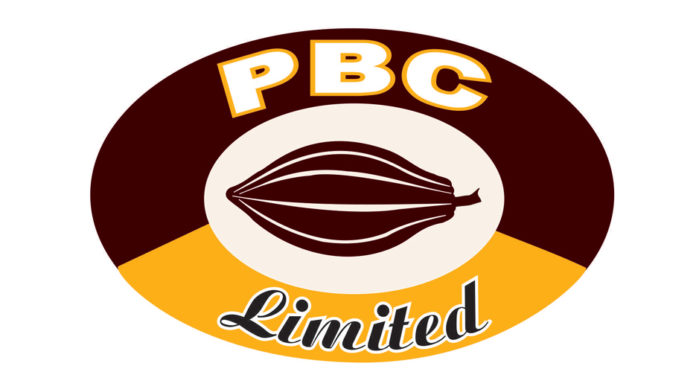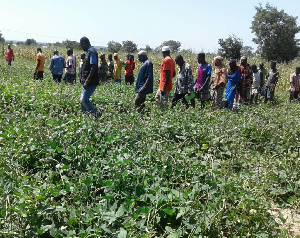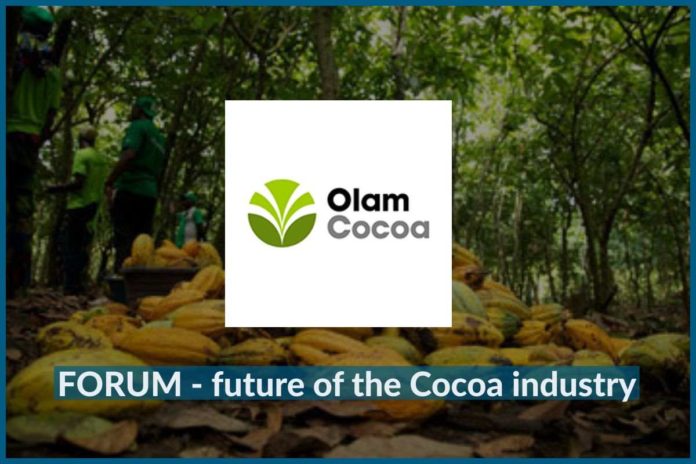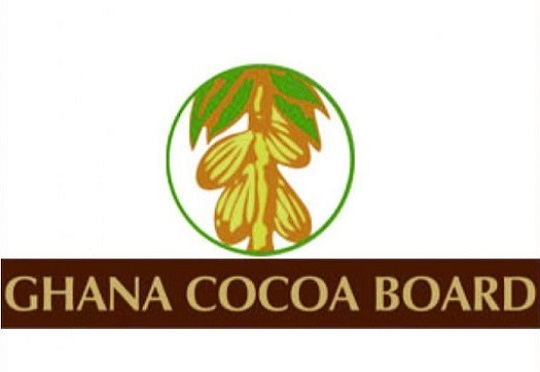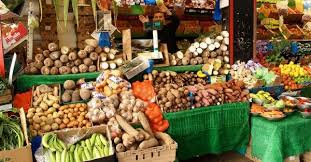Ghana is hoping to become the number-one teak producer in the world as it seeks to explore and develop new strategies and initiatives to further grow its teak production, the Minister of Lands and Natural resources, Samuel Abu Jinapor, has said.
PBC management beseech staffs for the delay in payment of salary.
The current economic crunch has affected many sectors making them thrive. To this extent, the management of the Produce Buying Company urged their staff members to exercise patience in delaying payment of the month of August salary.
In a circular issued on the 6th of September, it stated that the staff of the Produce Buying Company (PBC) Limited will have their August salaries delayed due to current financial challenges faced by the company.
It continues to read that the management has resolved to work round the clock to ensure payment of staff salaries for the month in question.
The management urged the staff members to bear with them in these difficult times.
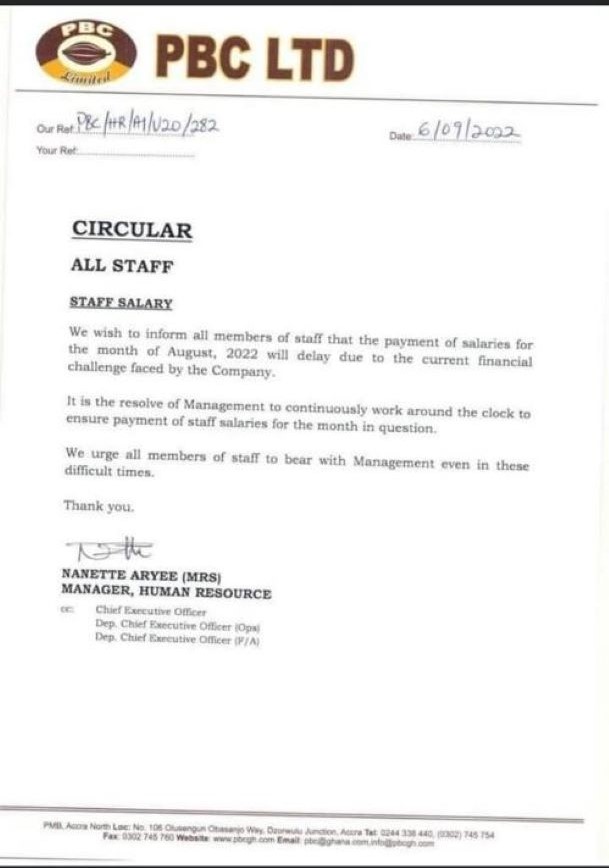
Komenda sugar factory only produced 30 bags of sugar for Akufo-Addo’s visit; factory shut down — Group.
Concerned Citizens of Komenda Traditional Area in the Central Region have refuted claims by President Nana Addo Dankwa Akufo-Addo that the Komenda Sugar factory has been revamped to produce sugar of commercial quantity in the country.
HJA Africa gives out organic fertilizers worth ¢50,000 to smallholder farmers.
One thousand, five hundred smallholder female farmers across the country will soon receive free fertilisers to boost their farm yields.
Olam commits to improving the agric sector with the purpose to be the change for good food and a healthy future.
Olam Food Ingredients Ghana Limited (ofi), a supplier of cocoa ingredients and the foremost exporter of cashew in the industry, has held its annual Managers’ Conference – bringing together key stakeholders and players to discuss industry dynamics and best practices for a sustainable cocoa industry.
COCOBOD has no plan on how to clear GHc12.3bn debt – Auditor General.
The Ghana Cocoa Board (COCOBOD) has been burdened with a relatively high loan portfolio over the years.
Elmina Fishing Harbour is 91% completed.
The ongoing fishing project, Elmina harbor as inspected by the president of the Republic, Nana Addo Dankwa Akufo-Addo as part of his 2-day working visit to the Central Region is 91% completed.
Almost 50% of Ghana’s population experiences food insecurity – GSS Survey
Data from the 2022 Annual Household Income and Expenditure Survey has revealed that 49.1 percent of the Ghanaian population was food insecure in the first quarter of the year.
This represents 15.1 million of the 30.8 million persons in Ghana.The percentage however dropped by 7 percentage points to 42.1 percent in the second quarter; 13 million of the total Ghanaian populace. The prevalence of food insecurity is higher in rural areas than urban areas.
Regional basis.
The Greater Accra Region recorded the lowest food insecurity with a percentage of 27.2 percent, while the Upper East Region saw the highest of 73.7 percent.
In the first quarter of the year, the prevalence of food insecurity in four regions in the northern part of the country; Savannah (58.8%), Upper West (61.8%), North East (65.6%) and Upper East (73.7%) were more than twice that of Greater Accra Region (27.2%).
It is also observed that all regions experienced a reduction in food insecurity between quarters 1 and 2 except for the Upper West Region which saw an increase from 61.8 percent to 55 percent.
Meanwhile, Oti and Western North regions experienced the largest declines of 19.6 and 18.7 percentage points respectively.
Severe food insecurity
Between quarters 1 (12.3%) and 2 (6.4%), severe food insecurity reduced by almost half. The decline is higher for rural households.Prevalence of severe food insecurity is highest in North East Region (32.9%) and lowest in Eastern Region (7.3%).
Nine regions record higher severe food insecurity prevalence than the national prevalence (12.3%).
About the Survey
The Annual Household Income and Expenditure Survey is the first nationally representative high-frequency household panel survey in Ghana.
The Survey, conducted by the Ghana Statistical Service, is being conducted to obtain quarterly and annual data on household final consumption expenditure and a wide scope of demographic, economic and welfare variables including statistics on labour, food security, multi-dimensional poverty and health status for research, policy, and planning.
The maiden publication presents highlights from the first and second quarter food insecurity, multidimensional poverty, and labour statistics reports.
Definitions of concepts (According to the GSS)
Food Insecurity – A lack of available financial resources for food at the household level. It is defined as a situation of “limited or uncertain availability of nutritionally adequate and safe food or limited or uncertain ability to acquire acceptable foods in socially acceptable ways”. (United States Department of Agriculture, 2000) Moderate Food Insecurity – People experiencing moderate levels of food insecurity will typically eat low-quality diets and might have been forced, at times during the last three months, also to reduce the quantity of food they would normally eat.
Severe Food Insecurity – People facing severe food insecurity have likely run out of food, experienced hunger and, at the most extreme, gone for days without eating.
COCOBOD’s GH¢12bn debt burden worrying – Auditor-General.
The Auditor-General, Johnson Akuamoah Asiedu, has raised concerns about the Ghana Cocoa Board’s (COCOBOD) increasing debt burden – which stood at approximately GH¢12.30billion as of September 2020.
The debt accumulation emanates from short-term cocoa loans of about GH¢8.49 billion; BoG 10-year loan of almost GH¢1.4billion; medium-term loan in a total of GH¢1.28billion; as well as an AfDB loan of GH¢1.14billion and BADEA Loan Account of GH¢174,295. “Our examination of the COCOBOD records noted that the Board has been burdened with relatively high loan portfolios over the years.
The Board had debts totalling GH¢12.3billion in its records as at end of the 2019/2020 financial year. We also noted from our review that the Board did not provide us with any effective plans to reduce its debt burden into the future,” the Auditor-General report said.
Accordingly, the AG noted that the debt burden has resulted in an increased finance cost over the years; from GH¢1.25billion in the 2018/2019 financial year to GH¢1.57billion in the 2019/2020 financial year. “This, if not managed effectively, could lead to crippling the cocoa industry. The absence of sustainable debt plans coupled with the absence of effective long-term cost control measures resulted in this state of affairs. We urge management to deploy and implement effective plans and strategies which lead to a reduction of the Board’s debt-burden within the medium- to long-term,” he encouraged.
COCOBOD’s response.
However, management of COCOBOD indicated in a response that the institution is implementing tighter budgetary controls, to ensure debt is not accumulated but rather make savings to repay all debts in its books.
Some of the strategies include issuing a bond of up to US$3billion to refinance the relatively expensive cocoa bills. The long-term debt, which is relatively cheaper, is expected to be used for refinancing the short-term cocoa bills that are expensive.
In the case of the 10-year BoG loan, COCOBOD noted a balance of about GH¢1.39billion which is being serviced based on a repayment schedule agreed with the Bank of Ghana.
The moratorium on repayment of the principal amount expired in January 2022; however, it expects to fully extinguish the loan by November 2023.
The total balance of non-current and current liabilities on the medium-term Loan of GH¢1.2billion has been settled, according to COCOBOD. “As a result of the prudent financial management being implemented, the MTL has been fully repaid 1 year ahead of schedule.”
On the BADEA loan, COCOBOD notes a possible write-off for the debt, following an agreement with the Ministry of Finance and subject to Parliamentary approval.
2020 financial year performance.
In the 2020 financial year, COCOBOD recorded a loss of GH¢426million as compared with a loss of GH¢320million registered in 2019. This represents a 33 percent decrease in the Board’s financial performance over the period. Revenue increased by 5.2 percent, from GH¢9.76billion in 2019 to GH¢10.27billion in 2020.
Even though COCOBOD recorded a 4.41 percent fall in cocoa production over the previous year, the rise in revenue was largely attributed to a higher export price per tonne of US$2,477 in 2020 compared with an average export price of US$2,236 for 2019.
The Board’s liquidity ratio (Current ratio) improved from 0.75:1 in 2019 to 0.82:1 in 2020. The increase notwithstanding, the Board will not be able to meet its short-term obligations as and when they fall due.
Auditor General directs COCOBOD to recover ¢2.25bn government debt.
The 2021 Auditor General’s Report has charged Ghana Cocoa Board (COCOBOD) to engage the Ministry of Finance to recover ¢2.25 billion that the government owed the cocoa regulator as of September 30, 2022.
This was because of the supply of cocoa beans to Genetec International Corporation (GIC), the government’s revenue support on the producer price of cocoa, and excess export duties paid by the COCOBOD for GIC on cocoa beans exported.
The report also noted that COCOBOD has a relatively huge loan portfolio totaling ¢12.301 billion as of the end of the 2019/2020 financial year.
“We urged management to deploy and implement effective plans and strategies that would lead to the reduction of the Board’s [COCOBOD] indebtedness within the medium to long term”.
It further said “we noted during our review of 2019/2020 approved a budget statement that COCOBOD expended an amount of ¢230.70 million on the principal repayment amount of a 10-year loan with Bank of Ghana (BoG) which was not included in the approved budget for 2019/2020 financial year. We advised Management to ensure that all the Board’s activities are adequately provided for in its estimates and ensure that it operates within its approved budget”.
It also said its review of the recovery of seed funds from Licence Buying Companies (LBCs) revealed that management could not recover seed funds and accrued interest totaling ¢47.024 million from LBCs for more than four cocoa seasons contrary to the provisions in the law.
“We urged management to recover the amount from the banks that guaranteed these facilities for the companies failing which the Board should pray the court to lift the veils of incorporation of these defaulting companies to demand the total indebtedness from the Directors and personalities behind these companies”.
Cocoa Marketing Company
The report identified that the company’s receivable aging report revealed that a total of $179.572 million in debt was overdue as of 30th September 2020.
“To effectively manage the recovery of the debts, we recommended to Management to institute innovative measures to collect the debt”.
Quality Control Company Limited (QCC)
The report noted that QCC invested an amount of¢500,000 in a vehicle loan investment account at the UMB Investment Holdings Limited (UMB IHL) contrary to the investment policy of the Cocoa Board.
It is further recommended to Management to avoid placing the Company funds in similar investment houses.
Cocoa Research Institute of Ghana (CRIG)
The report said the lack of effective control over the utilisation and accountability of monies lead to unretired imprest totaling ¢878,586 by November 30, 2020.
It, therefore, recommended that the amount be converted into advances against the officers and recovered from their salaries.


